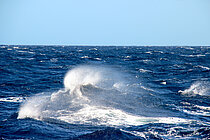GEOMAR Helmholtz Centre for Ocean Research Kiel
Communication and Media
Fon 0431 600-2807
Mail media(at)geomar.de
Carbon Uptake in the Ocean
According to current calculations, between 350 and 780 billion tons of carbon dioxide would have to be removed from the atmosphere by 2100 in order to achieve the promised climate targets. Various methods are being discussed here, with the focus increasingly on the ocean. Various measures could be taken to increase the uptake of carbon dioxide from the atmosphere into the ocean in the future. These include the storage of CO2 in submarine rock layers (CCS) or near-natural measures through the restoration of carbon-storing coastal ecosystems (blue carbon management), the enhancement of chemical CO2 uptake and sequestration through ocean alkalinity enhancement, or even artificial ocean upwelling.
More about Technologies for Marine Carbon Uptake
Marine Carbon Sinks in Decarbonisation Pathways (CDRmare)
In the new research mission CDRmare of the German Alliance for Marine Research (DAM), starting in 2021, researchers will investigate how and to what extent the ocean can play an essential role in the removal and storage of CO2 from the atmosphere and thus contribute to keeping climate change within the limits set by the Paris Agreement. Six collaborative research consortia will investigate different methods of marine CO2 removal and storage (alkalinization, blue carbon, artificial upwelling, CCS) in terms of their potential and risks. The research mission will thus provide an important decision-making aid in the development of the climate strategy.
Ocean-based Negative Emission Technologies (OceanNETs)
Scientists from 14 institutions in six countries are working on the opportunities and risks of ocean-based technologies for negative emissions within the framework of the EU-funded OceanNETs project coordinated by GEOMAR. Until now, such negative emission technologies (NETs) had been discussed mainly for the mainland. Knowledge about ocean-based NETs remains limited, despite the fact that the ocean has a high capacity for carbon uptake and storage simply because of its surface area and volume. The goal is to find out whether ocean-based NETs can play a significant and sustainable role in achieving climate neutrality as defined by the Paris Climate Agreement. It will also explore what impact they can have on policy, economy and society.


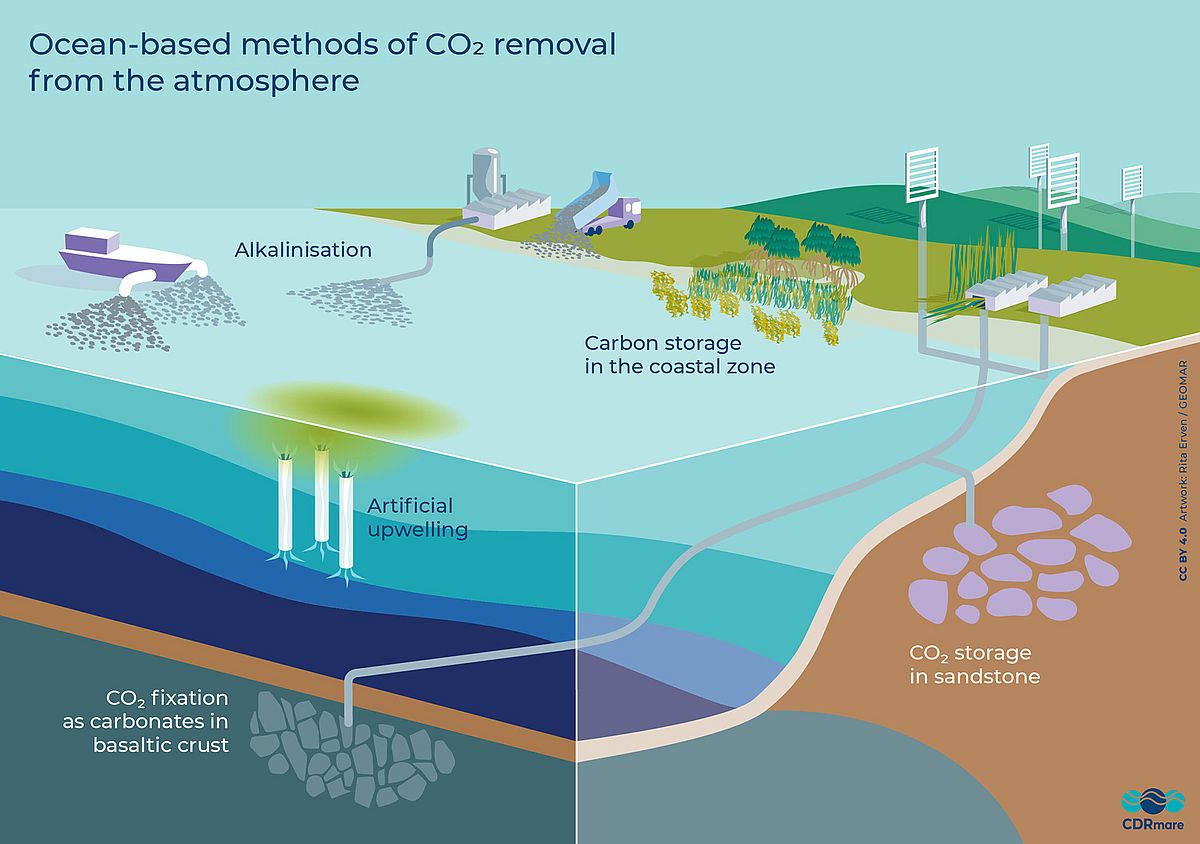
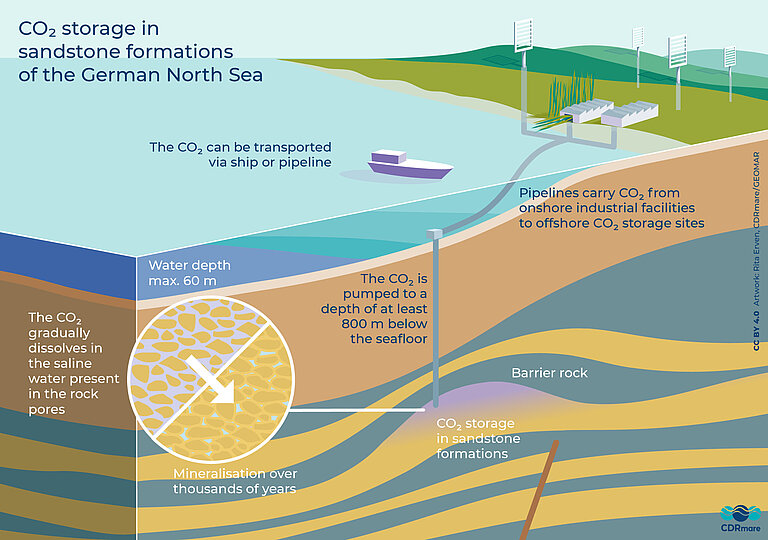
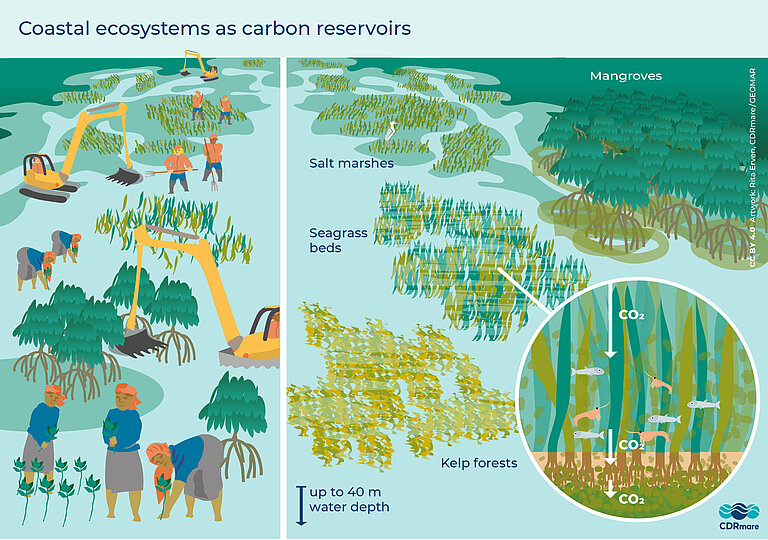
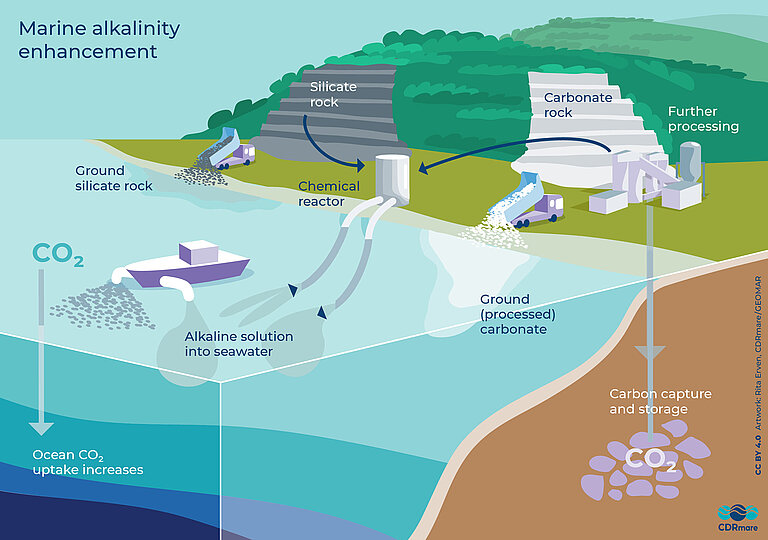
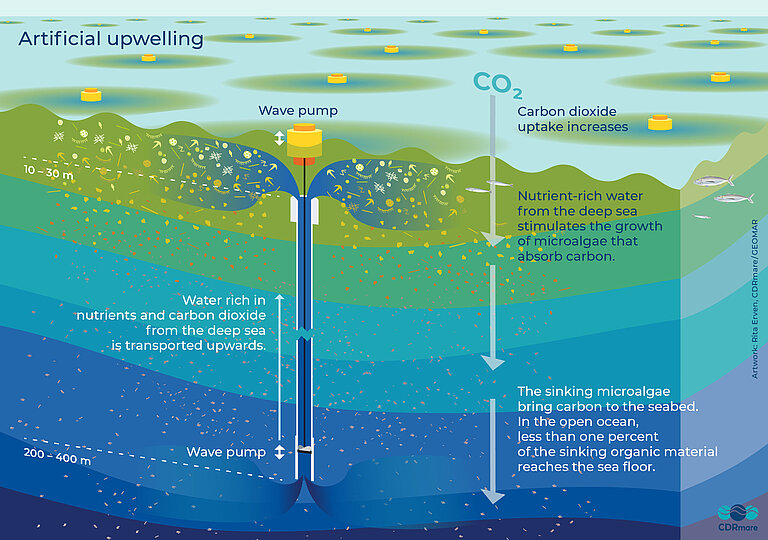
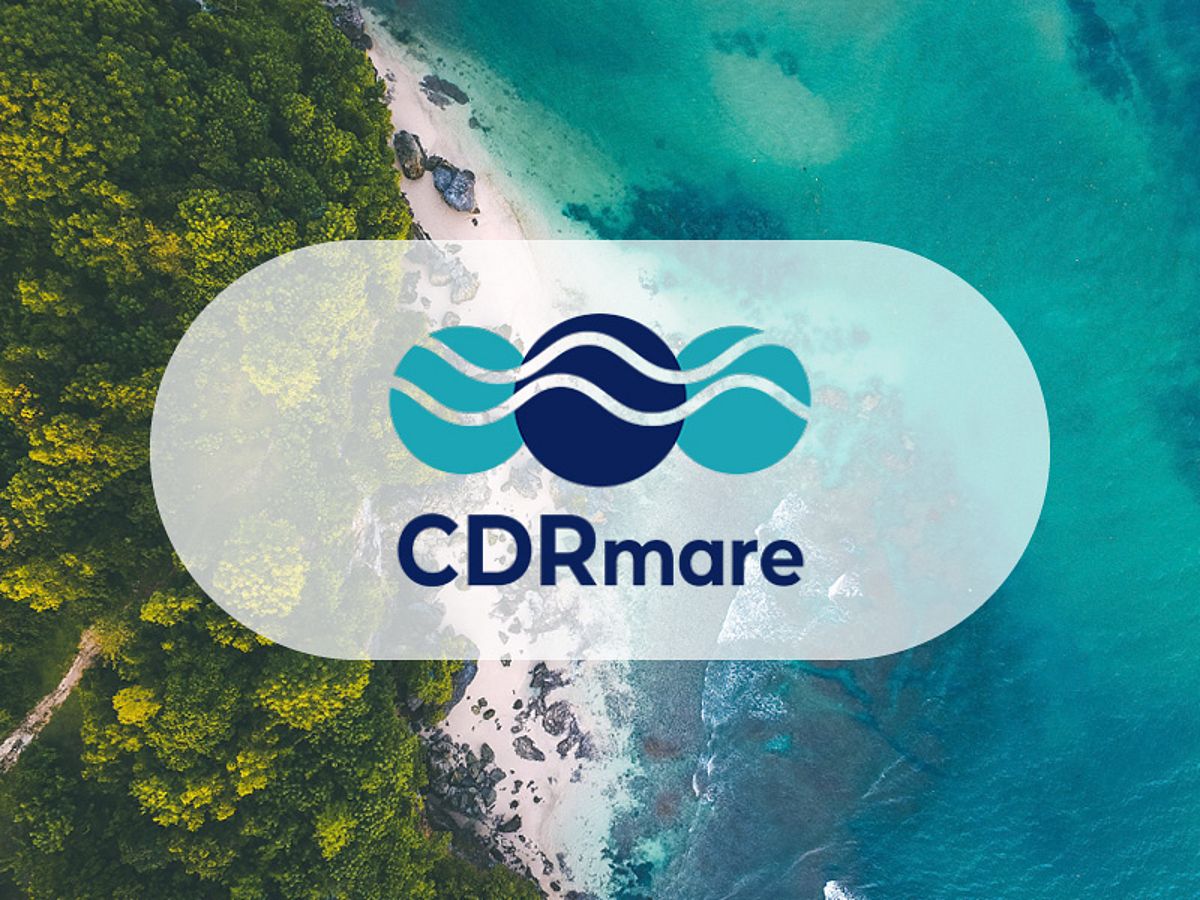
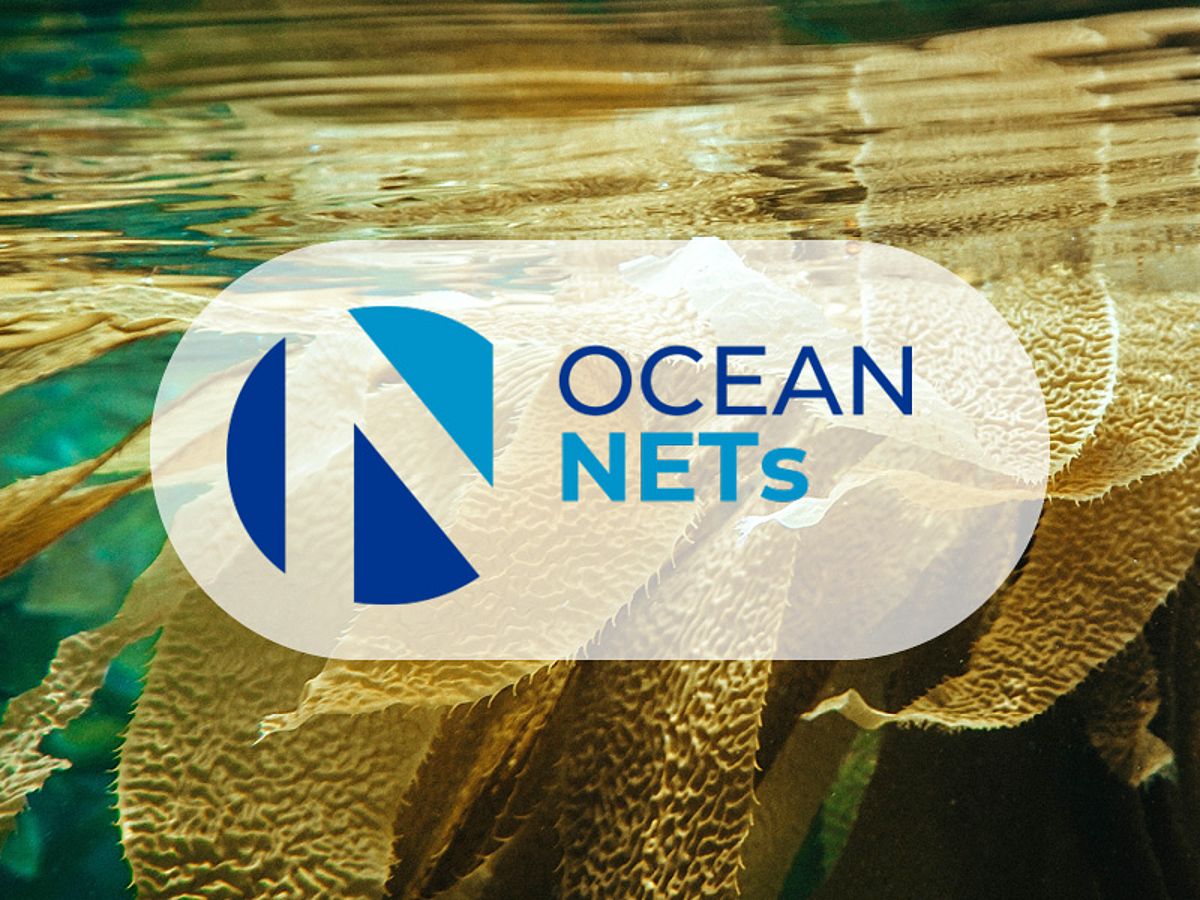
![[Translate to English:] Screenshot of a website showing a section of coastline from the air](/fileadmin/_processed_/d/8/csm_04_56_01_2__9ad52d09ce.jpg)
